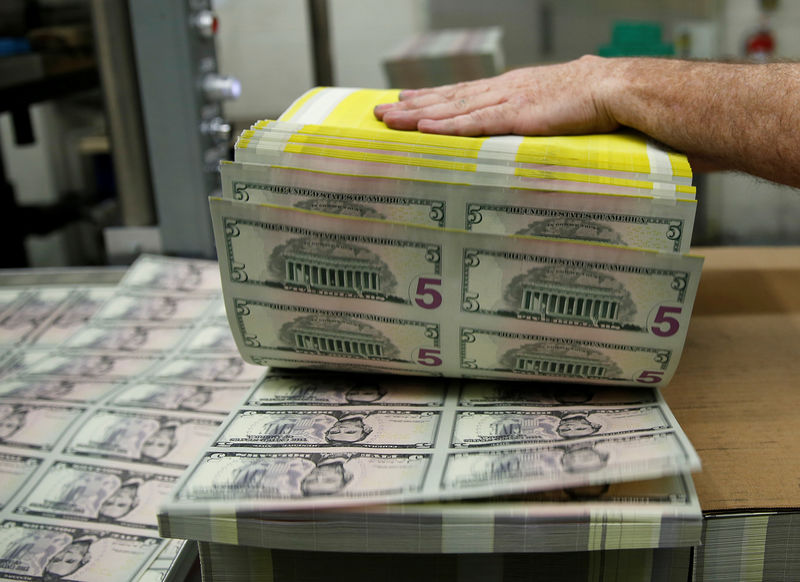Musk threatens Apple with legal action over App Store bias towards OpenAI
* Dollar, yen, Swiss franc in demand as safe-havens
* Aussie flirts with 3-1/2-month low, euro near 2-month low
* Fed perceived to be maintaining dovish stance
* Graphic: World FX rates in 2020 https://tmsnrt.rs/2RBWI5E
By Hideyuki Sano
TOKYO, Jan 30 (Reuters) - The dollar held near a two-month
high against a basket of major currencies while the Australian
dollar and the yuan were under pressure on Thursday as investors
tried to shield themselves from assets that could be hit by
China's virus epidemic.
The U.S. Federal Reserve, while keeping interest rates on
hold as expected on Wednesday, also cited the virus as a source
of uncertainty for the economic outlook. As the new pneumonia-like disease spread quickly in China,
the dollar is emerging as an ultimate safe-haven destination.
The dollar is the best performing currency among G10
currencies in January, with the dollar index =USD rising 1.6%
so far this month to hit a two-month high.
It last stood at 98.033, flat on the day but not far from
Wednesday's two-month high of 98.026.
The yen and the Swiss franc, traditional safe-haven
currencies, ranked a close second and third.
The yen firmed 0.1% to 108.90 yen per dollar JPY= , edging
close to a three-week high of 108.73 touched last week.
The Japanese currency has fallen 0.3% against the dollar so
far this month but risen against most others, adding 1.6% versus
the euro EURJPY= and 3.9% on the Australian dollar AUDJPY=R .
The Swiss franc CHF= changed hands at 0.9729 franc per
dollar, flat on the day and down 0.5% this month but hit a
32-month high against the euro EURCHF=R earlier this week.
"While it is highly uncertain how much the disease will
spread and how hard it will hit the economy, downgrades to the
Chinese economy look inevitable," said Minori Uchida, chief
currency analyst at MUFG Bank.
Indeed, a Chinese government economist said China's economic
growth may drop to 5% or even lower due to the coronavirus
outbreak, possibly pushing policymakers into introduce more
stimulus measures. That would deal a severe blow to other economies that rely
heavily on Chinese demand.
The Australian dollar fell more than 0.2% to $0.6732
AUD=D4 , its lowest level since mid-October.
The Aussie has lost 3.9% so far this month, the second worst
performing currency in the G10, behind only a 4.3% fall in the
Norwegian crown NOK= , which has been hit by falls in oil
prices.
The euro stood at $1.1009 EUR= , having touched a two-month
low of $1.0992 in U.S. trade on Wednesday.
The offshore yuan dipped , trading at 6.9730 yuan per dollar
CNH= , above the one-month low of 6.9900 touched on Monday.
Markets in China will remain shut this week.
Chinese health authorities said there were 7,711 confirmed
cases of infection as of the end of Wednesday, with the death
toll rising to 170, an increase of 38 from the previous day.
In the United States, the latest economic data was mixed.
New orders for U.S.-made capital goods dropped by the most
in eight months in December and shipments were weak, although
consumer confidence surged to a five-month high. U.S. bond prices gained, with the 10-year Treasuries yield
falling to 3 1/2-month low of 1.569% US10YT=RR , getting a
boost from not only wariness about the coronavirus but also
comments from Federal Reserve Jerome that were perceived to be
dovish.
"Overall, the Fed seems keen to cut rates if needed while
nothing in Powell's comments pointed to a chance of a rate hike
this year," said Naoya Oshikubo, senior manager of research at
Mitsui Sumitomo Trust Asset Management.
U.S. money markets are pricing in one rate cut by the third
quarter, though the chance of a near-term move is seen slim.
Elsewhere, sterling traded unchanged at $1.3016 GBP=D4
ahead of the Bank of England's policy decision later in the day.
Though expectations of a rate cut have substantially dropped
after some robust data last week, they still remain almost 50%,
suggesting the rate decision is likely to move the pound
whichever way the BoE goes.
The European Parliament gave final approval to Britain's
divorce from the European Union on Wednesday, paving the way for
the country to quit the bloc on Friday after nearly half a
century and delivering a major setback for European integration.
